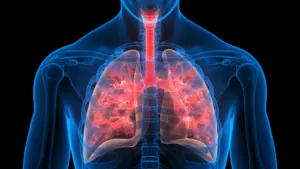
Transgender individuals face significant obstacles within healthcare systems that can hinder their access to essential medical services and compromise the quality of treatment they receive. According to a 2025 report from the Health Sciences University, over half of transgender respondents in the UK reported negative experiences with healthcare professionals. This troubling trend often stems from prejudice, discrimination, or a lack of understanding among healthcare providers, leading many to avoid seeking necessary medical attention.
One of the most prevalent issues is misgendering, where healthcare professionals use incorrect names or pronouns, such as referring to a transgender woman as “he” or using a previous name—known as deadnaming. This practice can deny an individual’s identity and create a hostile environment. Studies indicate that frequent misgendering can lead to feelings of invisibility and emotional distress among transgender and non-binary patients. The consequences are profound; it can discourage individuals from pursuing essential health services altogether.
The Trevor Project’s 2024 national survey on LGBTQ+ youth mental health reveals that transgender and non-binary young people who have their pronouns respected are half as likely to attempt suicide compared to those whose pronouns are frequently disregarded. While respectful pronoun use alone does not prevent such crises, it fosters a sense of affirmation and belonging. In contrast, misgendering reinforces feelings of rejection and invisibility, which can exacerbate mental health issues.
The psychological toll of misgendering, compounded by untreated health problems, can create an atmosphere where seeking medical help feels unsafe. Consequently, many transgender individuals develop a deep mistrust of healthcare providers, leading to reluctance in returning for follow-up care, even when necessary. Research shows that those who anticipate discrimination often experience worse physical and mental health outcomes due to delayed healthcare seeking.
Another major concern is the exclusion of transgender individuals from standard health screenings. Many medical protocols, such as cervical smear tests and prostate exams, were historically designed with cisgender patients in mind, leaving significant gaps in preventive care for transgender individuals. A large-scale primary care study in the US found that transgender patients were screened for cervical cancer at a rate of just 56%, compared to 72% for cisgender patients. Similarly, trans men were less likely to attend cervical and breast screenings, while trans women had lower rates of prostate cancer screening than cisgender men.
These disparities are not merely personal choices but reflect systemic issues within healthcare systems. Many administrative protocols still rely on gender markers rather than anatomical needs when sending screening invitations. This mismatch can lead to patients receiving irrelevant tests or missing out on necessary screenings, delaying early detection of treatable conditions.
Even when screenings are available, the procedures can be uncomfortable or traumatic for transgender individuals. For instance, trans men may still possess internal reproductive organs typically associated with female anatomy, creating heightened distress during pelvic exams. Conversely, trans women may find breast or prostate examinations triggering if healthcare staff lack training in gender-affirming care, which emphasizes respect, consent, and understanding of diverse anatomies.
In environments where such practices are absent, patients often fear being judged or misgendered, leading to heightened anxiety and discomfort during medical visits. This climate discourages preventive care, establishing a cycle where missed appointments result in later diagnoses and poorer health outcomes.
Another critical issue is a phenomenon referred to as “trans broken arm syndrome.” This term describes how healthcare practitioners may overlook immediate medical needs of transgender individuals by focusing disproportionately on their gender identity or transition history. For example, a transgender person with a broken arm might find that clinicians prioritize inquiries about hormone therapy or surgical history rather than addressing the injury. Such misdiagnosis or inappropriate care can lead to delays in treatment and exacerbate health issues.
The cumulative effects of misgendering, lack of inclusion in essential screenings, and “trans broken arm syndrome” often lead transgender individuals to avoid healthcare altogether. Anticipating disrespect or mistreatment can overwhelm their need for medical assistance, resulting in deteriorating physical and mental health over time.
The persistent suffering of many transgender people due to fears of discrimination highlights a systemic issue within healthcare systems. These disparities stem not only from individual biases but also from structural inequities in medical education and institutional design. Unless there is a cultural shift towards inclusion and respect, transgender individuals will continue to face significant barriers in accessing healthcare, with serious consequences for their overall wellbeing.






